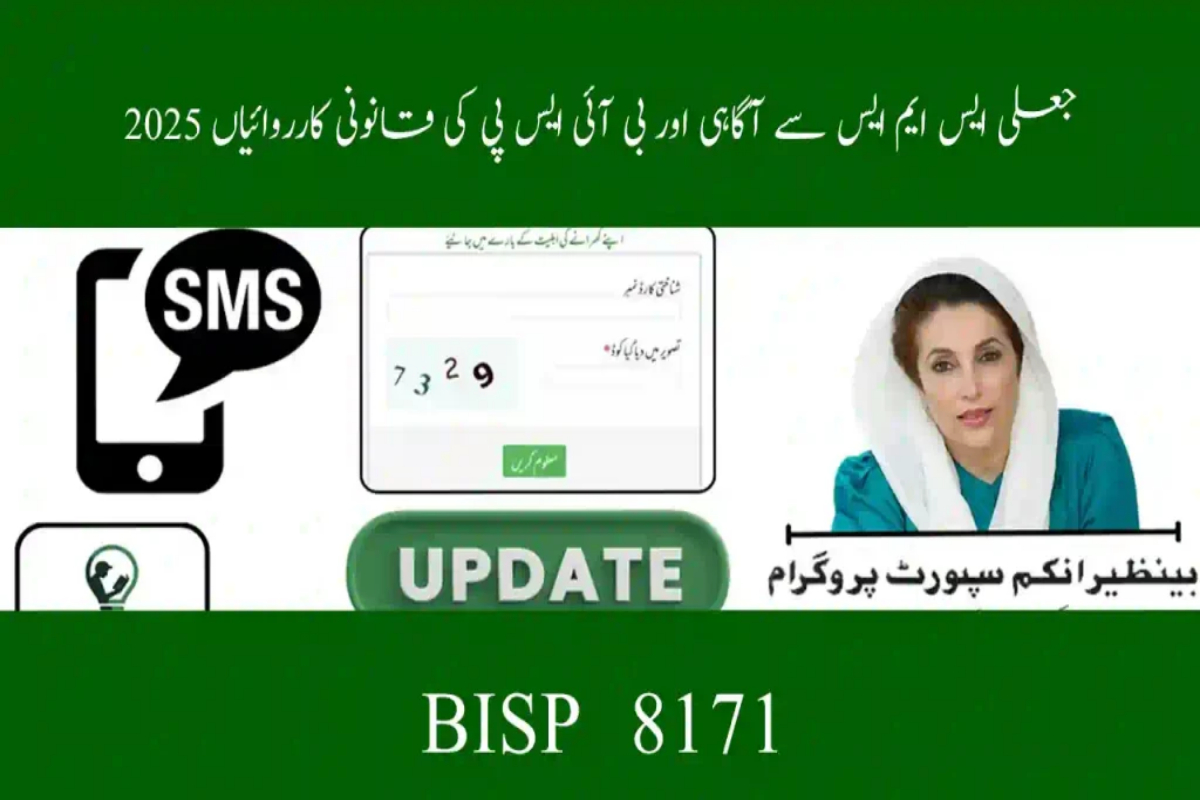BISP Legal Countermeasures 2025 Against Fraudulent SMS

BISP Legal Countermeasures 2025 Against Fraudulent SMS
Over the years, the Benazir Income Support Programme (BISP) has become a lifeline for millions of low-income families in Pakistan. By offering financial assistance, it helps households afford food, education, and essential needs. However, as the program has expanded, so have the schemes of fraudsters seeking to exploit vulnerable beneficiaries.
One of the most widespread forms of fraud involves fake SMS scams, where criminals impersonate BISP officials to trick people into sharing sensitive details. To counter this growing threat, BISP has launched strong awareness and enforcement measures in collaboration with state institutions and telecom operators.
How SMS Scams Operate
Fraudulent SMS scams are designed to appear legitimate and create a sense of urgency. Many beneficiaries, particularly in rural or low-income areas, become easy targets.
Common scam tactics include:
False Promises: Messages claim new payments have been approved.
Requests for Personal Data: Fraudsters ask for CNIC, mobile PIN, or bank details.
Urgency Traps: Beneficiaries are told payments will stop if they don’t respond quickly.
Fake Links: SMS includes links that mimic BISP’s official website.
Impersonation: Scammers pose as BISP staff or helpline operators.
By exploiting both hope and fear, these messages manipulate people into disclosing private information.
Stories of Affected Beneficiaries
The impact of such scams goes beyond financial loss — it strips vulnerable families of security and dignity.
Shazia, Mother of Three (Sindh): She received a message promising aid but asking to confirm her CNIC. After responding, her mobile wallet was drained.
Rashid, Laborer (Punjab): He clicked on a link that appeared official and entered his CNIC and SIM PIN. His details were later misused for illegal SIM registrations.
A Village in Khyber Pakhtunkhwa: Families reported receiving calls from fake “helplines” demanding processing fees to release payments, resulting in heavy financial losses.
BISP’s Multi-Pronged Response
BISP understands that warnings alone are not enough, which is why it has adopted a multi-layered approach to combating scams.
Public Awareness Campaigns
Through TV, radio, newspapers, social media, and community networks, BISP emphasizes that:
CNIC, PIN, or banking details are never requested via SMS.
Only verified channels share official updates.
Calls or texts demanding money must not be trusted.
Partnership with FIA
The Federal Investigation Agency (FIA) has stepped in to prosecute cybercriminals. Fraud cases are being registered, arrests made, and helplines established for reporting suspicious activities.
Role of Telecom Companies
Telecom operators and PTCL collaborate with BISP by:
Blocking fraudulent numbers.
Monitoring and filtering fake SMS traffic.
Assisting investigations with data sharing.
Community Engagement
Beneficiaries are encouraged to report fake messages. Local staff and volunteers help spread awareness in rural areas with low digital literacy.
Legal Action Against Fraudsters
Fraud targeting BISP beneficiaries is treated as a serious crime under Pakistani law. Measures include:
Cybercrime Cases: Registered under the Prevention of Electronic Crimes Act (PECA).
Arrests and Trials: Fraudsters are tracked and prosecuted.
Seizure of Equipment: Devices, SIM cards, and laptops used in scams are confiscated.
Penalties for Impersonation: Pretending to be a government official leads to heavy fines and imprisonment.
The Telecom Sector’s Critical Role
Telecom companies are on the frontline in safeguarding BISP beneficiaries by:
Deactivating suspicious SIMs.
Filtering fraudulent SMS before they reach recipients.
Tracking cross-border fraud routes.
Supporting FIA investigations to uncover fraud networks.
How Beneficiaries Can Stay Safe
Beneficiaries themselves play a key role in protecting against fraud. Essential precautions include:
Never sharing CNIC, PIN, or banking details via SMS.
Avoiding suspicious links in text messages.
Verifying payments through official BISP offices or helplines.
Reporting fraud attempts to FIA or BISP.
Educating family and community members, especially elders, about SMS scams.
Why Awareness is Essential
Fraud thrives where awareness is lacking. Educated communities are better at spotting scams, rejecting suspicious requests, and warning others. This makes awareness campaigns the cornerstone of BISP’s anti-fraud strategy.
Digital Literacy as a Long-Term Shield
While short-term campaigns are vital, the long-term solution lies in digital literacy. Educating beneficiaries about mobile and internet safety will make it harder for fraudsters to succeed.
Strategies include:
Training rural communities to verify official information.
Organizing workshops on mobile safety.
Introducing awareness programs in schools to involve younger generations.
By combining awareness, legal enforcement, telecom partnerships, and digital literacy, BISP is working to protect its beneficiaries from fraud and ensure that support reaches those who need it most.
Read More: BISP launches Sahulat Account Payment System for easier, safer aid distribution
Catch all the Trending News, Breaking News Event and Trending News Updates on GTV News
Join Our Whatsapp Channel GTV Whatsapp Official Channel to get the Daily News Update & Follow us on Google News.














